What makes someone leave behind the buzz of a big city — the cafés, career ladders, and convenience — for a quiet, self-sufficient life in the hills?
For Vasanthi Veluri and Anurag Chatrath, the answer wasn’t simply about escape. It was about finding something deeper, something that city life couldn’t offer. Today, the couple lives in Satoli, a remote village nestled in the Uttarakhand mountains, about two hours from Almora. Here, mornings begin with birdsong and mountain walks, and nights fall quietly under starlit skies. Life is slower, simpler, and more grounded.
But their journey to Satoli wasn’t without questions — or challenges. How did a textile designer and a former banker end up building a life so far removed from the one they were trained for? What did they leave behind and what have they gained in return?
Two different paths, one shared vision
Vasanthi spent her childhood on the green campus of IIM Ahmedabad, where her father was a professor. “I get attached to a place. Living on a green campus, I developed an affinity for plants. Also, my mother was very passionate about gardening,” she recalls. Apart from a short trip to Himachal, she had never really experienced the mountains as a child.
That changed during her years at the National Institute of Design (NID). While documenting the texratile traditions of the Northeast, she lived in Nagaland — an experience that deeply shaped her worldview. “The Northeast was an eye-opener. It made me realise that certain crafts traditions were dying and had to be revived.”
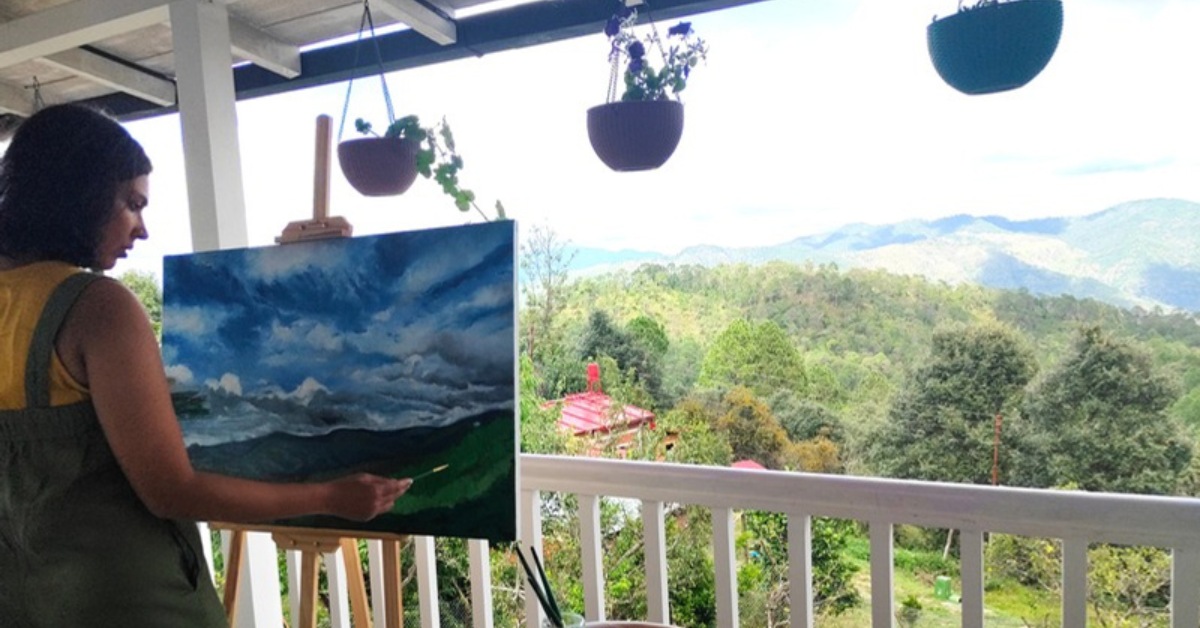
She also spent considerable time in a semi-rural environment, working with artisans. A student exchange semester in Melbourne made her realise how highly Indian crafts were valued abroad. In 2015, she co-founded ‘Peoli’, a textile design studio based in Almora, with her NID batchmate Abhinav Dhoundiyal. “We felt our presence as designers would have more impact in a remote area,” she says. “My parents had always encouraged me to pursue what I wanted. So, taking the unconventional path came naturally to me.”
Anurag’s upbringing, on the other hand, was marked by frequent moves — his father was in government service. “I’ve been constantly moving home all my life. This has impacted my life choices and passions. I love travelling. I don’t get rooted to places. Also, I am comfortable in most places,” he says.
Family vacations to hill stations like Shimla, Mussoorie, and Nainital were a yearly ritual — back when these places were quieter and less commercial. “I used to wonder what it would be like to live in the mountains,” Anurag adds.
Anurag studied economics at Delhi School of Economics and completed his MBA from IIM Ahmedabad. After 10 years in banking, he worked with the Scottish Environment Protection Agency, where he developed a growing appreciation for the natural world. “By then, I was drawn to the social impact sector. My travels brought me to Uttarakhand, where I was asked to head a non-profit, ‘Kilmora’, near Mukteshwar. I moved to the mountains in 2011 and led the NGO for seven years. I’m still associated with it in an advisory role, and now I consult with a US-based start-up.”
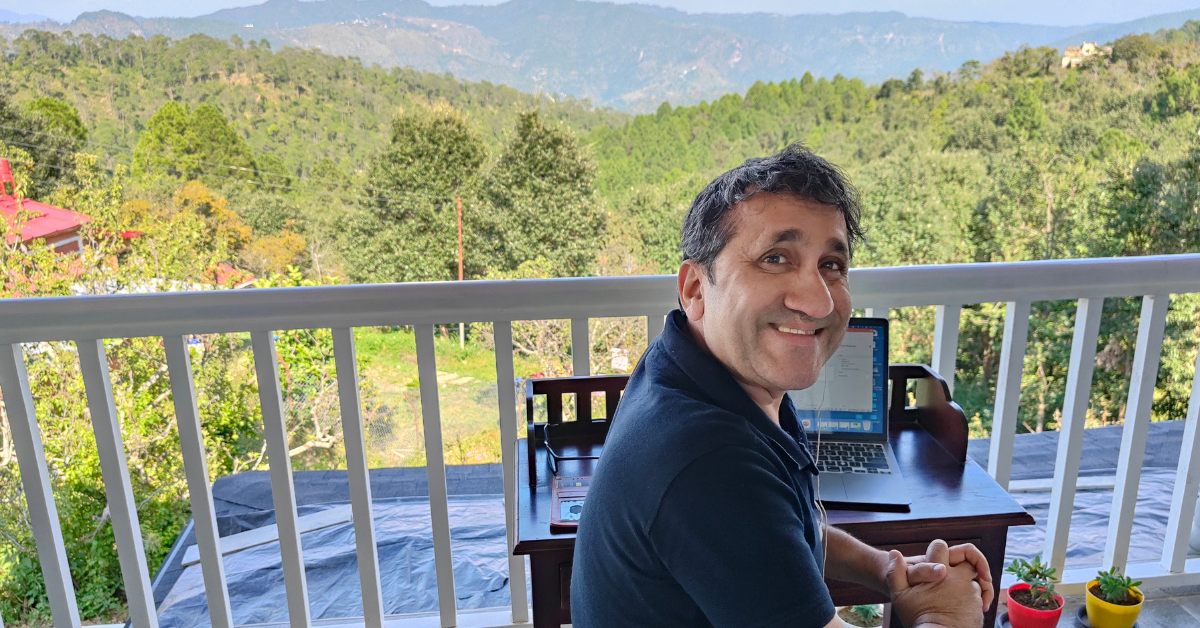
Though their paths were different, they both found themselves working in Uttarakhand’s non-profit ecosystem — and eventually, on the same train to Delhi.
“We knew of each other professionally, but we got to know each other better during that train journey to an exhibition,” says Vasanthi. That conversation would eventually lead to a shared life rooted in the mountains.
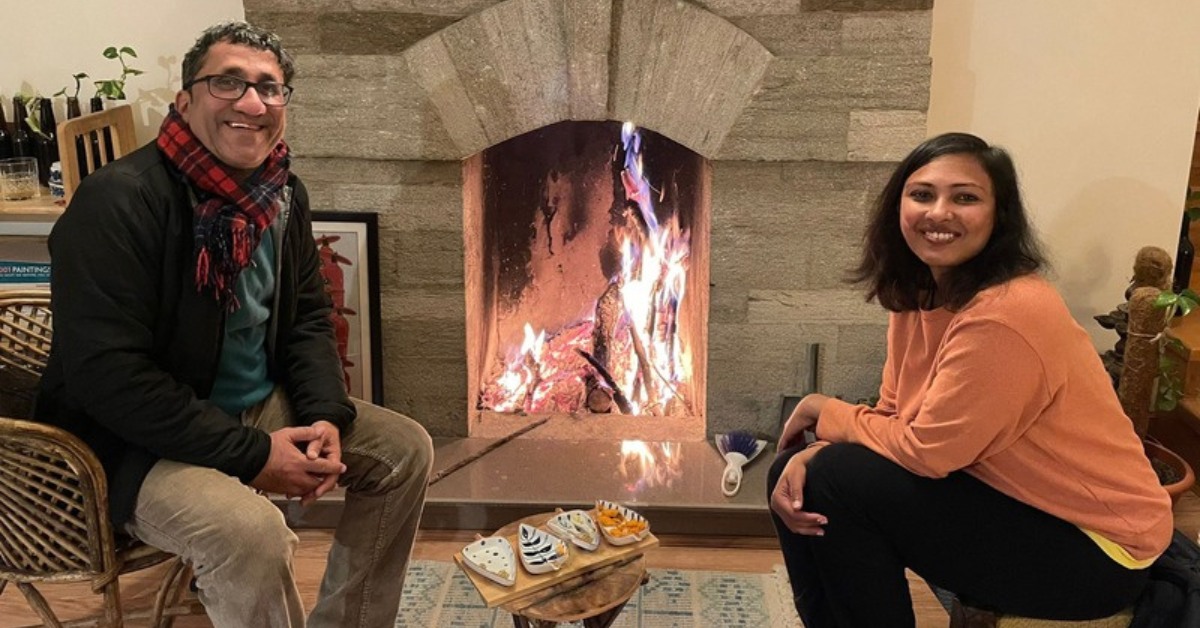
‘What if we just… moved to the mountains?’
“We live in the mountains not just for the fresh air or pretty views,” says Anurag. “Apart from there being no pollution, good weather, no traffic, fewer people — we are surrounded by nature. That is beautiful and humbling. We lead less complicated lives here. We are forced to live within our boundaries. Initially, that was challenging — now we appreciate that.”
“We also live in the mountains because we can make a difference,” he continues. “Vasanthi makes a difference working with the local community through her venture Peoli. I used to do the same at Kilmora. Having spent so long in the mountains, we can’t think of living anywhere else. We dread travelling to the cities.”
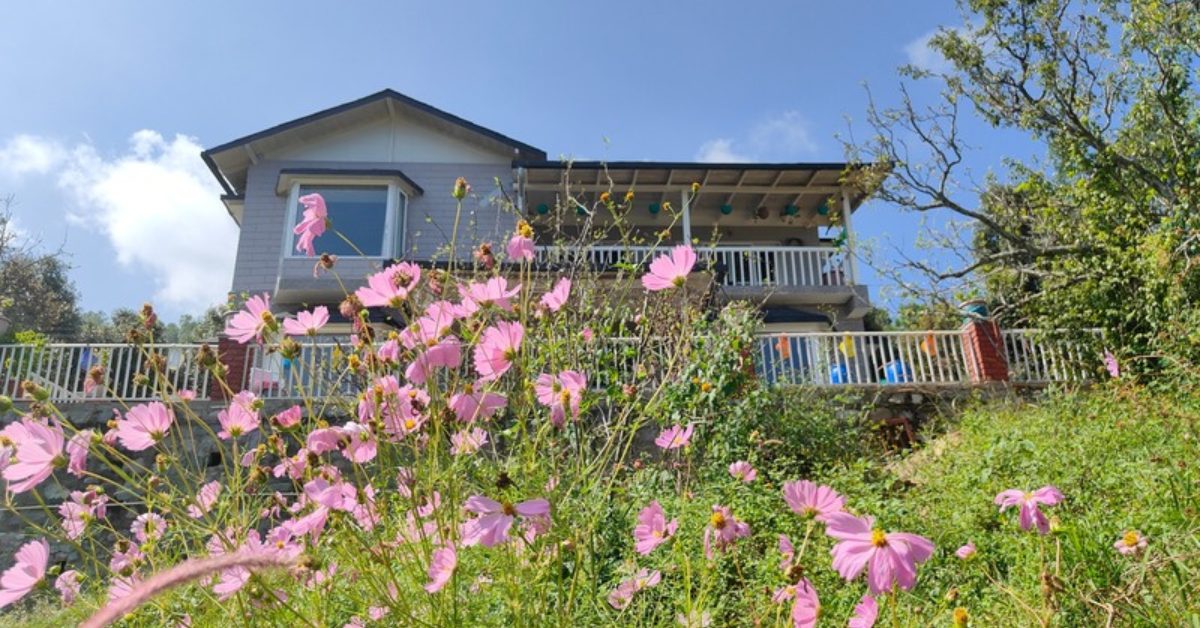
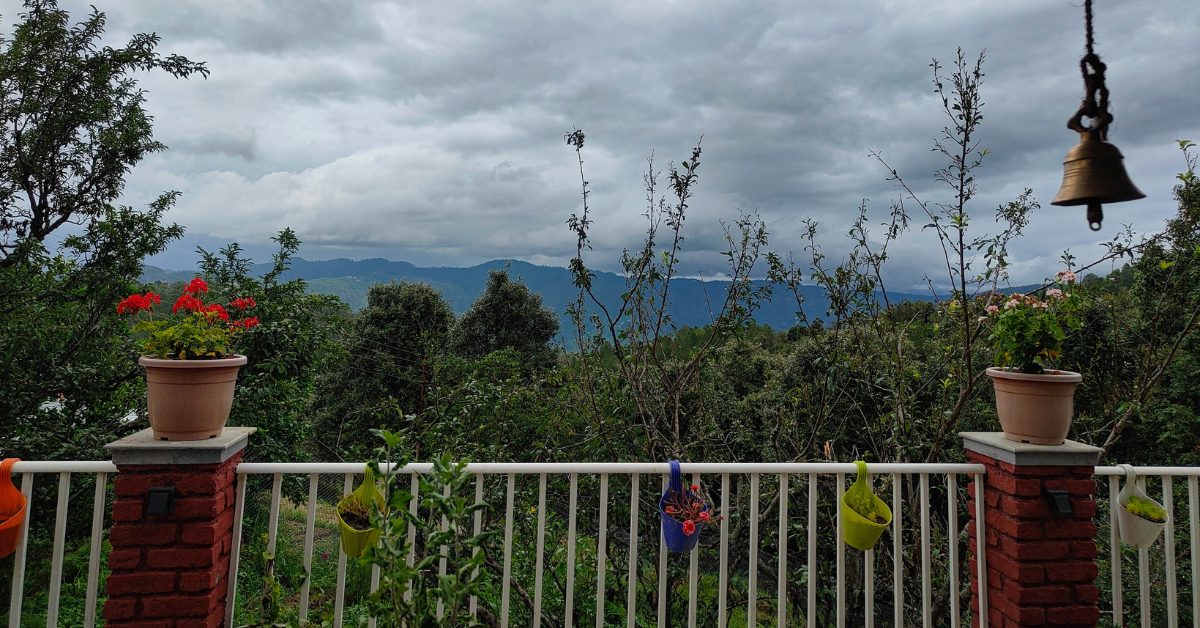
Vasanthi adds, “We are misfits in the cities. Unless we have to, we do not visit cities. My father lives in Ahmedabad, while Anurag’s father is in Panchkula near Chandigarh, so we travel occasionally to meet them. From our home in Satoli, we are surrounded by forests and have a spectacular view of the Nanda Devi range and Panchachuli peaks.”
Roots, routines and remote living
Power shutdowns are part of the rhythm of mountain life. “We make sure our laptops and phones are charged. Sometimes, we use our phones as hotspots,” says Anurag. “I use a solar-powered battery pack. If it rains continuously for two days, we usually don’t have power for four days.”
At Peoli, the team relies on hand-processing to remain unaffected by power cuts. “As for the cold, I still crib about it,” Vasanthi laughs. “I’ve lived most of my life in Ahmedabad, so I’m used to hot weather. But we make it work — we sit in the sun during the day and burrow under blankets early in the evening. We also have heaters, a fireplace, and a bonfire area.”
“Satoli is very cold for six months of the year, and pleasantly mild for the rest,” she adds.
At 1,700 metres above sea level, Satoli hasn’t caused any altitude-related issues, but it comes with its own wild challenges. “I would divide wild animals into two categories — the dangerous ones and the nuisances,” says Anurag. They avoid venturing out at night to steer clear of leopards and keep their doors sealed to block snakes. “Usually, wild animals do not bother you if you do not bother them.”
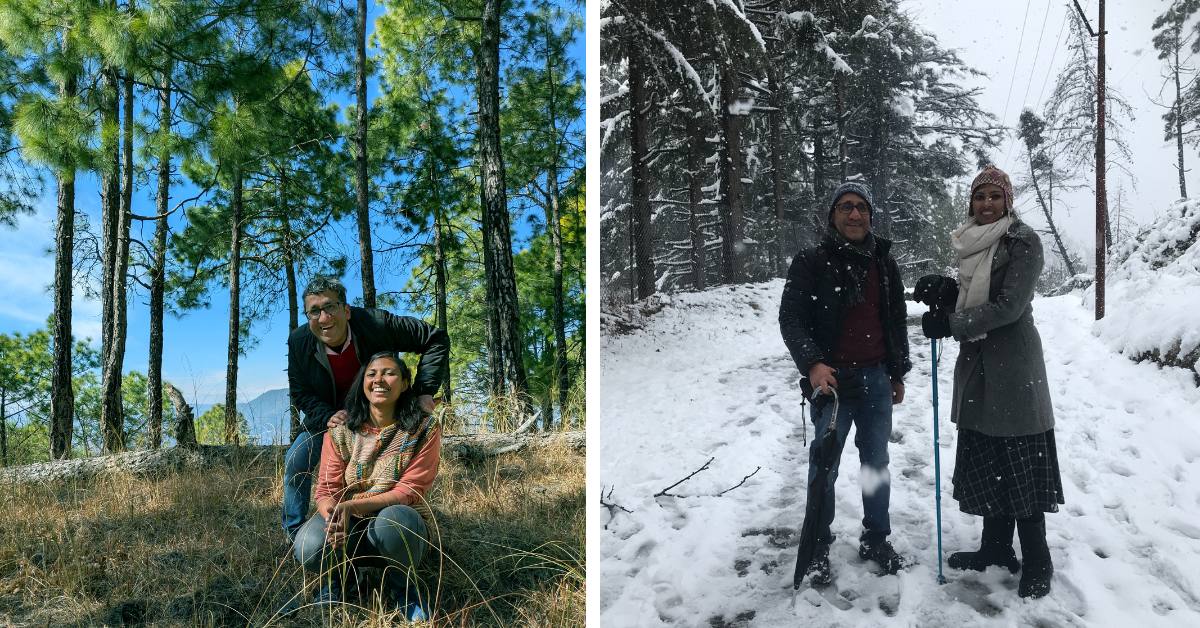
But monkeys and langurs? “They make farming a challenge by eating up the crops,” he adds ruefully.
“Many people have migrated from the mountains because of the monkey nuisance. We have deer and rabbits too. We are resigned to the fact that if you are growing something, you have to share it with animals. Co-existence is a way of life in the mountains,” says Vasanthi.
When the nearest hospital is 40 km away
Medical emergencies in a remote village come with real risks. “Recently, a friend lost her husband because of not being able to access medical help in time,” says Anurag. “There’s a small primary care hospital run by an NGO 10 kilometres away. But for proper treatment, you have to go to Almora or Haldwani.”
To improve response times, the couple has helped set up a WhatsApp group and database of local ambulances, doctors, and taxi drivers.
Forest fires are another concern. “If somebody spots a fire, they call neighbours to help out. A prompt community response is needed,” he says.
The wild neighbours no one warned them about
Living close to nature has made the couple deeply conscious of their footprint. They compost wet waste, burn paper and cardboard in the fireplace, and reuse disposable items — like turning plastic cups into planters and glass bottles into decorative installations.
“We club store runs, carpool with neighbours, and grow what we can,” says Vasanthi. “That not only helps us reduce waste but also cuts down our carbon footprint.”
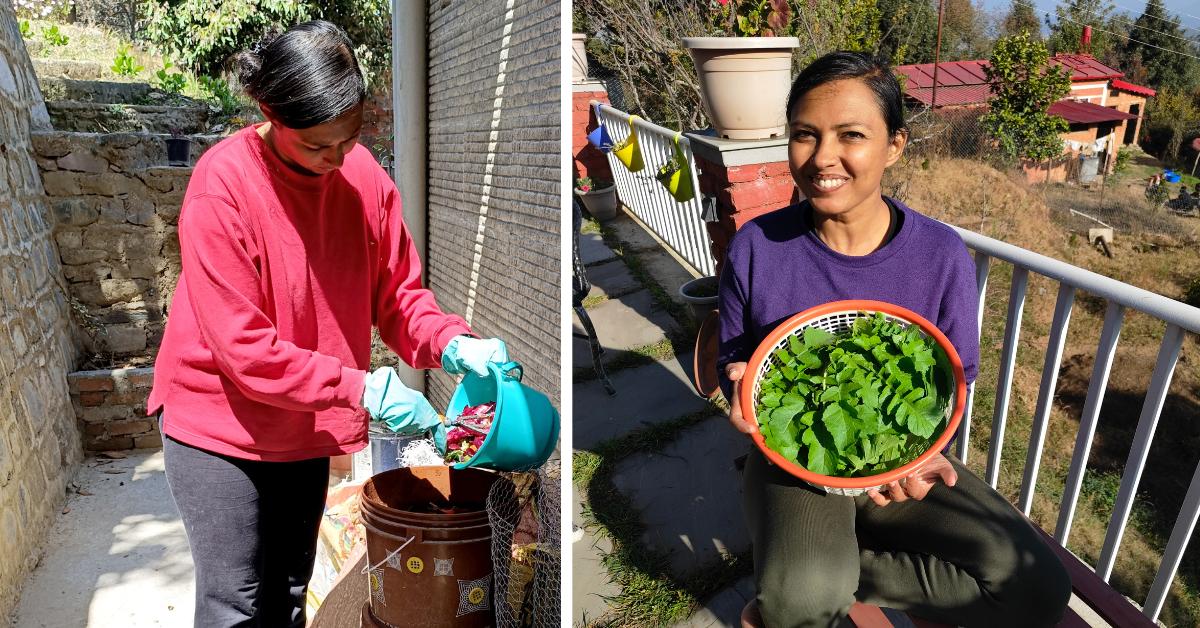
Water is another concern. “It’s only going to get harder,” says Anurag, citing climate change and increased construction. Borewells aren’t allowed due to the fragile terrain. Their home and Peoli rely on a nearby spring, supplemented by rainwater harvesting.
“It was tested and found to be cleaner than RO water,” says Vasanthi. “I spend a good part of my day switching pumps on and off,” Anurag laughs.
They even reuse water from rinsing rice and vegetables to nourish their garden. “We grow only as much as our water supply permits.”“For instance, there is not much water in the spring. We may face a crisis in the summer months,” adds Anurag.
What the mountains really teach you
“People in the mountains tend to be self-sufficient. You have to be comfortable with your own company,” says Anurag. Both being single children, they’ve developed hobbies that keep them engaged. “I paint, do jigsaw puzzles,” says Vasanthi. “Anurag is a reader and loves his stamp collection.”
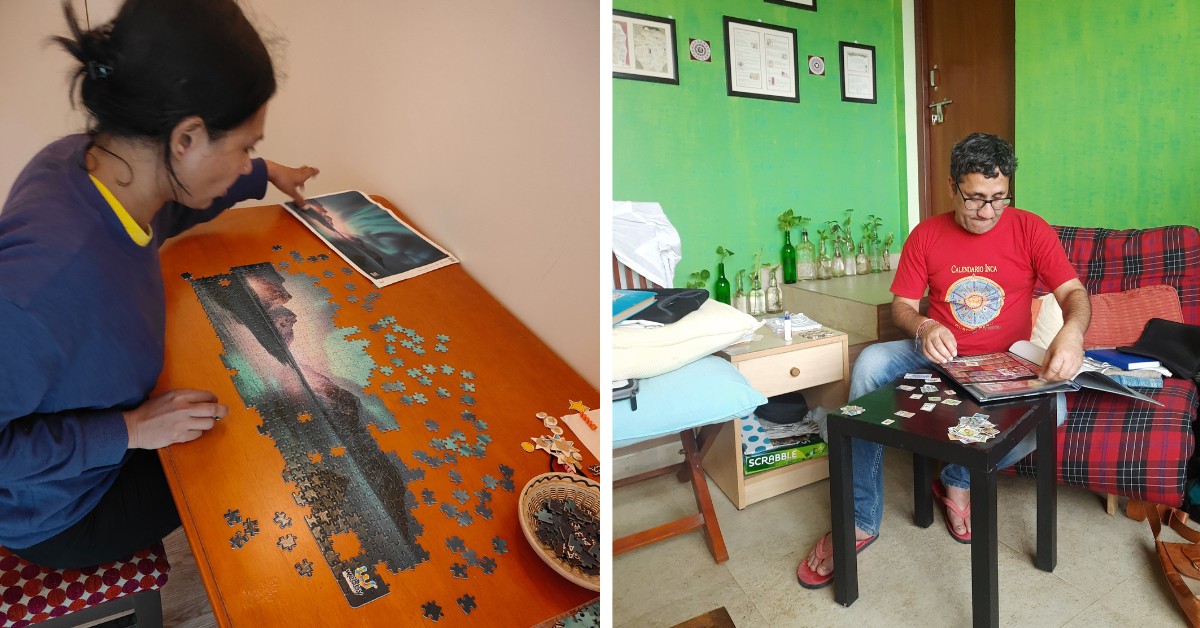
“There are 100 people living within five kilometres of us. It’s a close-knit community. When we were new, our neighbours told us where they kept their spare car keys and said we could use their vehicle anytime. During a landslide near Almora, we got home late and our neighbours checked in to ensure we were safe.”
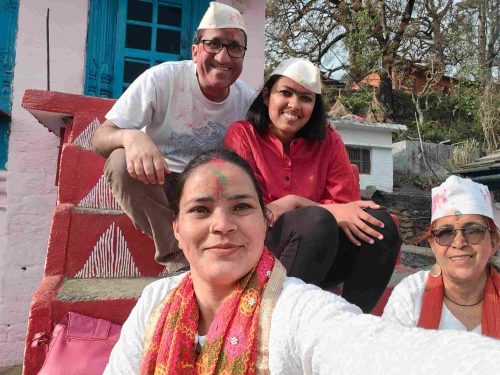
With access to fresh spring water, they grow garlic, radish, beetroot, pumpkin, green peas, leafy greens — and fruits like plums, peaches, apricots and pears. Compost becomwaes their fertiliser, and their small harvest is shared (sometimes unwillingly) with the wildlife.
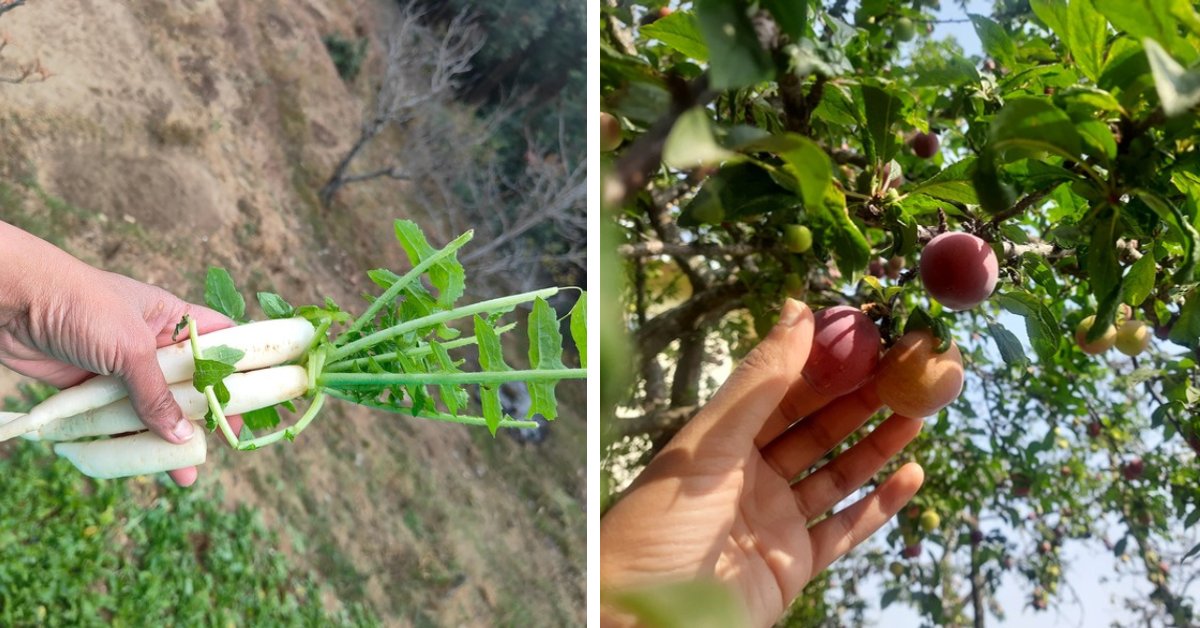
They don’t have a pucca road leading to their house, so they walk 20 minutes to reach their car. A small local store near the parking spot serves their basic needs.
“The sleep cycle changes in the mountains,” says Vasanthi. “We’re asleep by 9.30 pm and up by 5 am. I was a night owl before, but there are fewer distractions here, and the physical work tires you out.” Even guests, she jokes, fall into the rhythm.
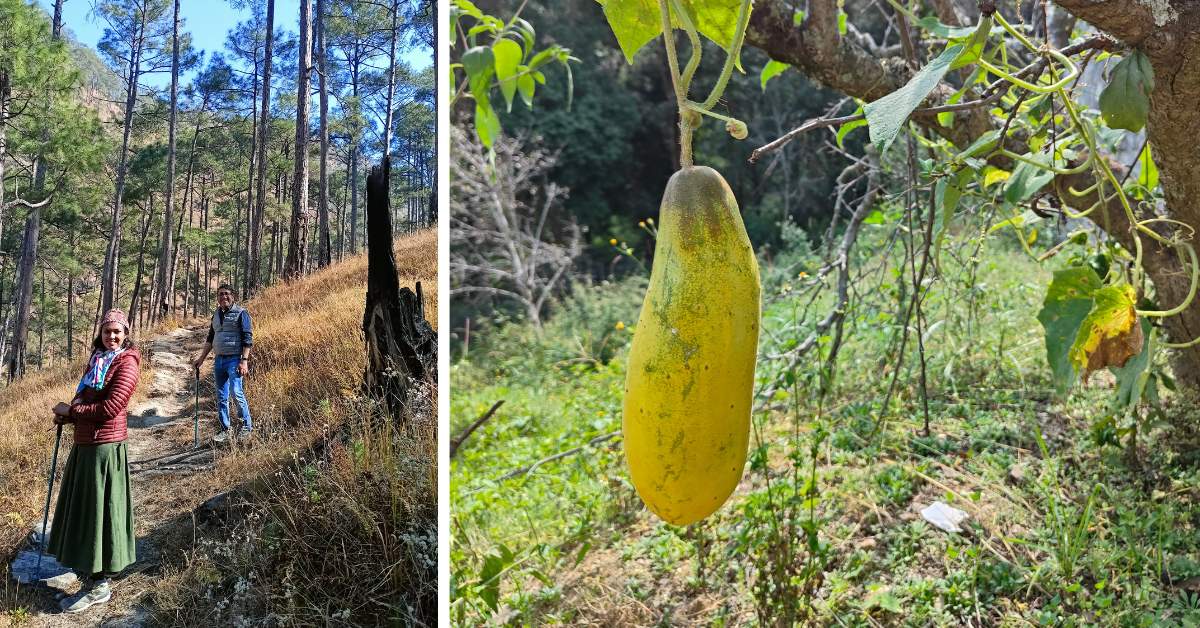
Their mornings begin with yoga and cycling, followed by a quiet breakfast together. Anurag spends nearly two hours watering the plants. Vasanthi learns Bharatanatyam online from a teacher in Bengaluru. Domestic help visits daily to cook and clean. Vasanthi works from home and travels to Almora, which is 40 km away, twice a month. “Daily design and production are managed by Abhinav,” she says.
Anurag’s flexible work schedule also accommodates the unpredictable realities of mountain life. “Both our jobs give us flexibility, so if there is an emergency like a water crisis, monkey invasion or forest fire, we can deal with it.”
He’s also taken up learning Telugu — Vasanthi’s mother tongue — in true ‘two states’ spirit. “I am from Punjab while Vasanthi is from Andhra Pradesh. One Dussehra, I even acted in a Ram Leela!”
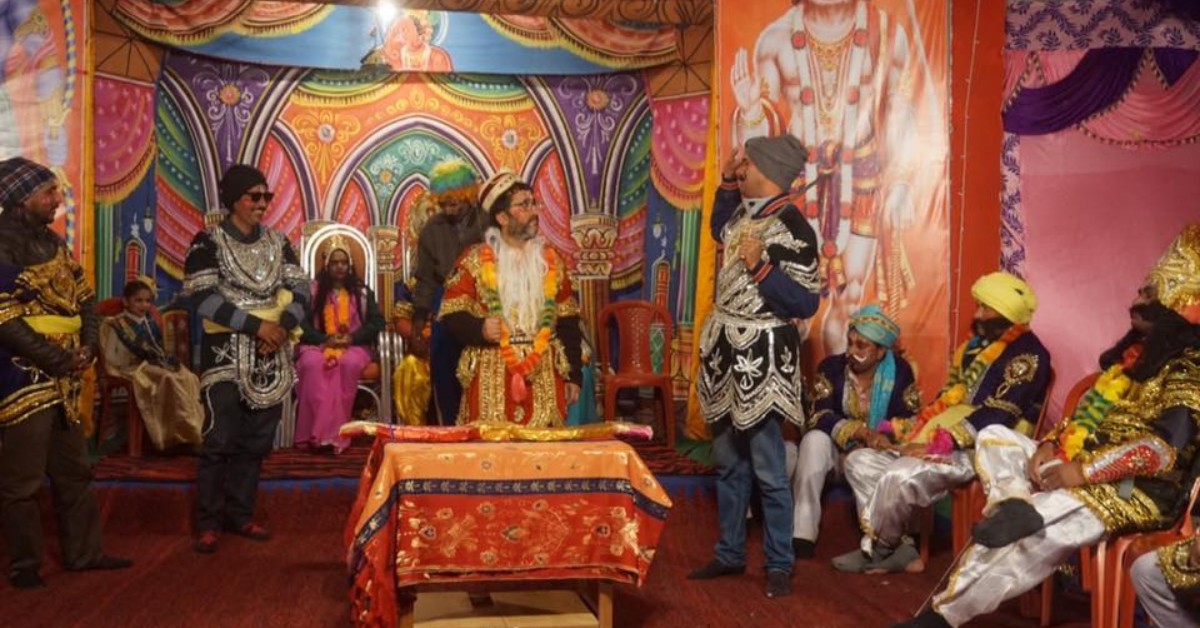
“A sense of slowness and stillness comes with living here,” says Vasanthi. “After initial restlessness and impatience, we’ve accepted this way of life. Mountain living has taught us the value of patience. An Amazon parcel takes at least a month to reach us. The repair guy may take 10 days.”
“It sharpens your survival instincts,” Anurag adds. “But more importantly, it teaches surrender — that so much in life is beyond your control.”
“Living in a remote area makes one more empathetic. We think about others and the community more. People are not in a rush here. There is time and space to think of others. Of course, you become more independent and resourceful as you have to solve many problems yourself,” says Vasanthi.
And perhaps most of all, it teaches trust. “Trust in your neighbours,” she smiles, “and trust that the Amazon person will finally reach you.”
Not everything in the mountains is easy. But for Vasanthi and Anurag, it’s exactly where things feel right.
Edited by Khushi Arora
No comments:
Post a Comment